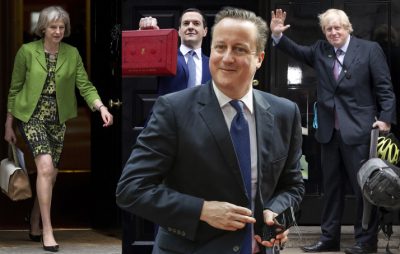EPA photo
By
Tom Arms
Lies and democracy don’t mix. Also unacceptable in political recipes in the democratic pot are half-truths, misinformation, disinformation, distortions or any attempt to be economical with the truth.
Politics in democracies demand the highest possible degree of honesty. This is because a political structure built on anything other than the truth is akin to constructing a palace on sand. Without a firm foundation it will collapse under the weight of reality or be swept away by the tides of an angry electorate.
And it is not just the politicians’ careers in jeopardy. Their lies undermine the basic political structures on which our entire way of life depends.
It is regularly argued that politicians lie. Everyone knows that. You just have to sift through the lies and, pull out the dwindling nuggets of truth and vote accordingly. There are problems with this shoulder shrug argument. For a start, most voters have neither the time nor inclination to sort the truth from the lies. They lead busy lives outside the political maelstrom. It is a 24/7 all-consuming struggle to try to make ends meet as butchers, bakers and candle stick makers.
Next, it is argued that a politician who climbs into office on the back of a lie can be thrown out at the next election. Of course, by then he or she has already done the damage which may not be reversible. Also, their cavalier misuse of the truth makes it less likely that large numbers will vote in the next election, which further undermines parliamentary democracies.
Then there are those occasions when the vote is such that there is no opportunity to turn out the offending politicians. The recent Brexit referendum is just such a case. It was a once in a lifetime—perhaps several life times—decision by the British electorate. What was involved was quite simply a major change to the British constitution which will have far-reaching consequences both for Britain and the wider world.
Exactly what those consequences are—whether they are as bad as some people think, or as good as others believe—will not be fully comprehended for some time. However, it is generally agreed that the changes will be profound.
For that reason, what the British public required — and repeatedly demanded– was the highest degree of probity from the opposing political camps. What they deserved was carefully considered arguments which presented a holistic view that clearly outlined the pros and cons of each side. Instead, the politicians carefully did their research, consulted the focus groups, and told the voters what they wanted to hear rather than what they needed to hear—or even, dare I say it, the truth.
When the voters were told that leaving the EU would result in billions being poured into their much-loved National Health Service and at the same time prevent millions of immigrants from pouring into their overcrowded island, they opted for the Brexiteers.
But the ballot papers were hardly out of their boxes before the Brexiteers were madly backpedalling. “It was a mistake” said Nigel Farage on the morning after the vote. A mistake to promise billions in new money to the National Health Service. Boris Johnson and Michael Gove said that Britain could now “control” immigration, but that did not mean fewer immigrants would be entering the country.
Despite growing disillusionment with the Brexiteers there is no stomach for another referendum. The country needs time to heal from a campaign that has left Britain reeling from the dangerous divisions it exposed.
What exactly the electorate will do when they realise they are the victims of a massive fraud is one of the great unknowns? Will they stop voting? Will they turn to populist politicians who offer dangerously simplistic solutions? Will the normally placid British resort to civil unrest or just sink into a deep slough of despondency? No one knows. But to paraphrase the late British Prime Minister James Callaghan, it won’t be long before “the sky turns black with the wings of chickens coming home to roost.”
Tom Arms broadcasts on world affairs for a number of US radio stations including WTKF at http://www.wtkf107.com/. His Weekly Viewpoints discussion programme can be heard at 1830 EST on Wednesdays and his LookAhead at the next week’s main events on Fridays at 1800.
LookAhead Radio World Report for week commencing 11 July:



No Comments Yet!
You can be first to comment this post!